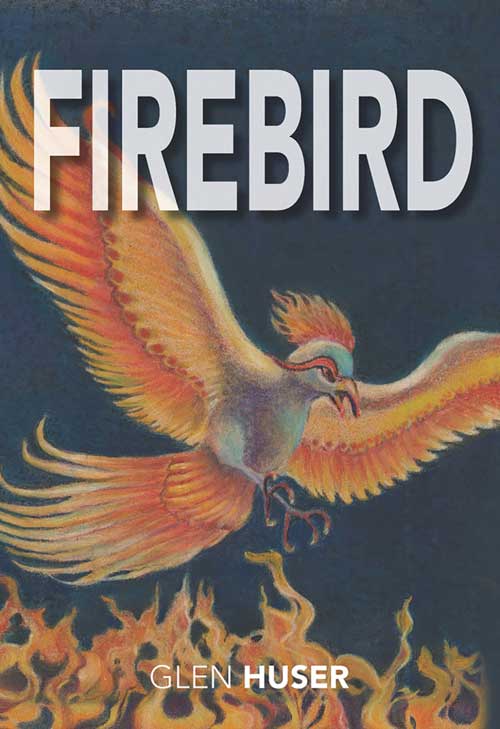
by Glen Huser
Ronsdale Press
2020/$12.95/286 PP.
Some stories are timeless. The oldest and most enduring is the tale of a young hero who encounters the heights of kindness and the depths of depravity along a perilous journey. It’s the theme of the Epic of Gilgamesh (probably the first fictional story ever written down), and is a tale retold in various permutations right up to Disney’s The Lion King. No matter how familiar, this storyline continues to captivate.
In his young adult novel Firebird, Glen Huser, a Governor General’s Award-winning novelist for young teens, sets his heroic saga against the backdrop of one of Canada’s most shameful historical events. Alex, a 13-year-old immigrant orphan from Galicia (in today’s Ukraine but then a part of the Austro-Hungarian Empire), is left homeless and alone in Vermilion after a fire kills his uncle. It’s 1915 and war has just pitted Germany and Austria-Hungary against the Allies. Thousands of farmers, miners and farmhands, including Alex’s older sibling Marco, are imprisoned as enemy aliens in Alberta. Brutal conditions in the Castle Mountain internment camp near Banff leave Marco emaciated and close to death. Alex, penniless and still new to Canada, decides to make his way from the homestead in central Alberta to search for his brother.
Alex is unprepared for the diverse characters, class structure and rampant racism he encounters. He is called a “bohunk,” “Austro-Hun” and “enemy alien” by arrogant colonial elites and indigent settlers alike. These vivid accounts of life in early 20th-century Alberta make this story a compelling read for adults and youth. Historic sites, some still existing and familiar, such as Edmonton’s High Level Bridge trolley, take on a new life.
But the most eye-opening parts of the book, the descriptions of Marco’s incarceration, are so little known that readers may need to consult theCanadian Encyclopedia to verify that the story is grounded in history. It turns out that across Canada 24 internment camps held over 8,000 people. The majority were Ukrainians of Austro-Hungarian origin. Construction in Banff National Park, including trails, highway construction to Lake Louise, and stone quarrying for the Banff Springs Hotel, was done through forced labour by immigrants, imprisoned behind barbed wire and held at gunpoint. Some, such as the fictional Marco, succumbed to tuberculosis.
Despite the horror, the arc of the story is uplifting. Perseverance and the kindness of strangers allow Alex to reunite with his brother and help nurse Marco in his final days. Ultimately this is a true heroic odyssey. Just as with Gilgamesh, Alex can’t overcome death but can learn to accept it, deepening his courage and character on the path to that epiphany.
Agnieszka Matejko is an artist and writer in Edmonton.
_______________________________________

